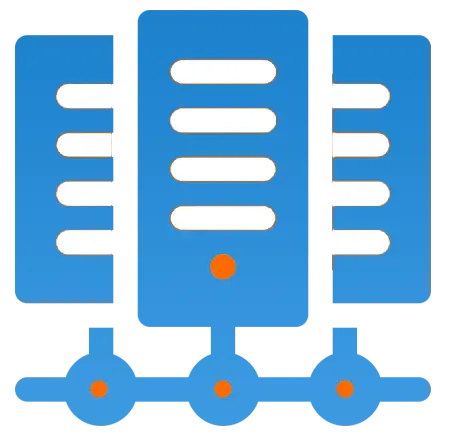Get 69% Off on Cloud Hosting : Claim Your Offer Now!
- Products
-
Compute
Compute
- Predefined TemplatesChoose from a library of predefined templates to deploy virtual machines!
- Custom TemplatesUse Cyfuture Cloud custom templates to create new VMs in a cloud computing environment
- Spot Machines/ Machines on Flex ModelAffordable compute instances suitable for batch jobs and fault-tolerant workloads.
- Shielded ComputingProtect enterprise workloads from threats like remote attacks, privilege escalation, and malicious insiders with Shielded Computing
- GPU CloudGet access to graphics processing units (GPUs) through a Cyfuture cloud infrastructure
- vAppsHost applications and services, or create a test or development environment with Cyfuture Cloud vApps, powered by VMware
- Serverless ComputingNo need to worry about provisioning or managing servers, switch to Serverless Computing with Cyfuture Cloud
- HPCHigh-Performance Computing
- BaremetalBare metal refers to a type of cloud computing service that provides access to dedicated physical servers, rather than virtualized servers.
-
Storage
Storage
- Standard StorageGet access to low-latency access to data and a high level of reliability with Cyfuture Cloud standard storage service
- Nearline StorageStore data at a lower cost without compromising on the level of availability with Nearline
- Coldline StorageStore infrequently used data at low cost with Cyfuture Cloud coldline storage
- Archival StorageStore data in a long-term, durable manner with Cyfuture Cloud archival storage service
-
Database
Database
- MS SQLStore and manage a wide range of applications with Cyfuture Cloud MS SQL
- MariaDBStore and manage data with the cloud with enhanced speed and reliability
- MongoDBNow, store and manage large amounts of data in the cloud with Cyfuture Cloud MongoDB
- Redis CacheStore and retrieve large amounts of data quickly with Cyfuture Cloud Redis Cache
-
Automation
Automation
-
Containers
Containers
- KubernetesNow deploy and manage your applications more efficiently and effectively with the Cyfuture Cloud Kubernetes service
- MicroservicesDesign a cloud application that is multilingual, easily scalable, easy to maintain and deploy, highly available, and minimizes failures using Cyfuture Cloud microservices
-
Operations
Operations
- Real-time Monitoring & Logging ServicesMonitor & track the performance of your applications with real-time monitoring & logging services offered by Cyfuture Cloud
- Infra-maintenance & OptimizationEnsure that your organization is functioning properly with Cyfuture Cloud
- Application Performance ServiceOptimize the performance of your applications over cloud with us
- Database Performance ServiceOptimize the performance of databases over the cloud with us
- Security Managed ServiceProtect your systems and data from security threats with us!
- Back-up As a ServiceStore and manage backups of data in the cloud with Cyfuture Cloud Backup as a Service
- Data Back-up & RestoreStore and manage backups of your data in the cloud with us
- Remote Back-upStore and manage backups in the cloud with remote backup service with Cyfuture Cloud
- Disaster RecoveryStore copies of your data and applications in the cloud and use them to recover in the event of a disaster with the disaster recovery service offered by us
-
Networking
Networking
- Load BalancerEnsure that applications deployed across cloud environments are available, secure, and responsive with an easy, modern approach to load balancing
- Virtual Data CenterNo need to build and maintain a physical data center. It’s time for the virtual data center
- Private LinkPrivate Link is a service offered by Cyfuture Cloud that enables businesses to securely connect their on-premises network to Cyfuture Cloud's network over a private network connection
- Private CircuitGain a high level of security and privacy with private circuits
- VPN GatewaySecurely connect your on-premises network to our network over the internet with VPN Gateway
- CDNGet high availability and performance by distributing the service spatially relative to end users with CDN
-
Media
-
Analytics
Analytics
-
Security
Security
-
Network Firewall
- DNATTranslate destination IP address when connecting from public IP address to a private IP address with DNAT
- SNATWith SNAT, allow traffic from a private network to go to the internet
- WAFProtect your applications from any malicious activity with Cyfuture Cloud WAF service
- DDoSSave your organization from DoSS attacks with Cyfuture Cloud
- IPS/ IDSMonitor and prevent your cloud-based network & infrastructure with IPS/ IDS service by Cyfuture Cloud
- Anti-Virus & Anti-MalwareProtect your cloud-based network & infrastructure with antivirus and antimalware services by Cyfuture Cloud
- Threat EmulationTest the effectiveness of cloud security system with Cyfuture Cloud threat emulation service
- SIEM & SOARMonitor and respond to security threats with SIEM & SOAR services offered by Cyfuture Cloud
- Multi-Factor AuthenticationNow provide an additional layer of security to prevent unauthorized users from accessing your cloud account, even when the password has been stolen!
- SSLSecure data transmission over web browsers with SSL service offered by Cyfuture Cloud
- Threat Detection/ Zero DayThreat detection and zero-day protection are security features that are offered by Cyfuture Cloud as a part of its security offerings
- Vulnerability AssesmentIdentify and analyze vulnerabilities and weaknesses with the Vulnerability Assessment service offered by Cyfuture Cloud
- Penetration TestingIdentify and analyze vulnerabilities and weaknesses with the Penetration Testing service offered by Cyfuture Cloud
- Cloud Key ManagementSecure storage, management, and use of cryptographic keys within a cloud environment with Cloud Key Management
- Cloud Security Posture Management serviceWith Cyfuture Cloud, you get continuous cloud security improvements and adaptations to reduce the chances of successful attacks
- Managed HSMProtect sensitive data and meet regulatory requirements for secure data storage and processing.
- Zero TrustEnsure complete security of network connections and devices over the cloud with Zero Trust Service
- IdentityManage and control access to their network resources and applications for your business with Identity service by Cyfuture Cloud
-
-
Compute
- Solutions
-
Solutions
Solutions
-
 Cloud
Hosting
Cloud
Hosting
-
 VPS
Hosting
VPS
Hosting
-
GPU Cloud
-
 Dedicated
Server
Dedicated
Server
-
 Server
Colocation
Server
Colocation
-
 Backup as a Service
Backup as a Service
-
 CDN
Network
CDN
Network
-
 Window
Cloud Hosting
Window
Cloud Hosting
-
 Linux
Cloud Hosting
Linux
Cloud Hosting
-
Managed Cloud Service
-
Storage as a Service
-
 VMware
Public Cloud
VMware
Public Cloud
-
 Multi-Cloud
Hosting
Multi-Cloud
Hosting
-
 Cloud
Server Hosting
Cloud
Server Hosting
-
 Bare
Metal Server
Bare
Metal Server
-
 Virtual
Machine
Virtual
Machine
-
 Magento
Hosting
Magento
Hosting
-
Remote Backup
-
 DevOps
DevOps
-
 Kubernetes
Kubernetes
-
 Cloud
Storage
Cloud
Storage
-
NVMe Hosting
-
 DR
as s Service
DR
as s Service
-
-
Solutions
- Marketplace
- Pricing
- Resources
- Resources
-
By Product
Use Cases
-
By Industry
- Company
-
Company
Company
-
Company
Measuring the Limitations of Cloud Storage
Is the cloud limited by its storage capacity? Is there a possibility to expand the storage capacity to infinite levels? The term “unlimited storage” has been a topic of intense debate in the realm of cloud computing, with numerous providers touting it as a key feature of their services since DropBox’s launch in 2007. As the famous quote in the Iron Man movie, “Everything is possible through technology.”
- They claim that this allows users and businesses to effortlessly share and store vast amounts of data and media on the internet.
- However, many of these providers and their clients were unaware of the actual limitations of cloud storage in terms of hardware, finances, and practicality.
- Presently, billions of individuals and companies all over the world use cloud storage solutions provided by companies such as Google, Amazon, Microsoft, and Apple iCloud. Cloud is a ubiquitous entity
- For instance, Google Docs is among the most widely-used cloud storage and syncing platforms, used for file sharing and online backups. Despite this, many people still wonder whether cloud storage is truly limitless.
If we rewind back to the possibilities of computing 2 decades ago, our recent inventions and breakthroughs were thought to be almost impossible back then. With that being said, cloud computing has already helped us achieve many breakthroughs. IT-based companies are operating at a phenomenal pace because cloud computing has made all computing systems robust and streamlined. Cloud storage is not going to be any different.
Difference Between Cloud Storage, Back Up, and Synchronization
When comparing cloud storage solutions and providers, you may encounter confusing terms that could mislead your decision-making process. There are three terms that you will come across frequently: cloud storage, cloud backup, and sync. All of these features are part of cloud storage. Data is an object that needs storage that must be secure and impervious to unauthorized access and it is critical for making analytical decisions
- It is important to understand the meaning of these terms as you evaluate different services and determine the type of cloud computing and storage platform you want to use. Although these terms are related, they are not interchangeable.
- Providers such as DropBox, OneDrive, Google Drive, Apple iCloud, and Amazon Cloud Drive provide cloud service, allowing us to upload files and photos from one device to a central, virtual location accessible from any device.
- In contrast, cloud backup makes copies of your files and ensures continuous backup occurs to avoid losing your files in case your laptop or thumb drive is lost, stolen, or damaged.
- Cloud backup does not automatically upload your files to a cloud storage folder, but rather saves your changes as you work on a file through an application and attempt to maintain the most recent version of the file.
This allows you to download your files on another device if you lose your laptop or thumb drive. Syncing, on the other hand, refers to sharing content across a cloud storage platform, such as uploading Word files on Google Drive and allowing others to access and make changes to those files. The changes made to the files are saved and synced, allowing you to access the updated version of the file.
Possibilities of Unlimited Cloud Storage
The idea of “unlimited” cloud storage from major providers like Amazon and Google can be misleading. In reality, these providers offer as much storage as customers need, not necessarily want. “Unlimited” storage actually means that customers can get the storage they need at a cost, without any cap on the amount of data they can upload, download or store. The scalability can be extended to a remarkable level.
However, other companies that have tried to offer true unlimited storage, such as Bitcasa, have failed due to the challenges of balancing low-volume and high-volume users and maintaining profitability. CompleteCloud is an exception, providing access to all the storage customers need without extra charges, regardless of the amount of data they store. This ensures that storage needs do not become an inhibitor to the right IT solution.
Meanwhile, technological breakthroughs are happening everywhere. Conventionally, we were using large hardware components for storing data. There was a time when there were stacks of storage disks that could store data up to 4MBs in the late 60s. However, the case is very different today. With the advancements in chipset hardware, we can now store terabytes of data in a small chip the size of a fingernail.
Limitations of Cloud Storage
Cloud storage has limitations and the storage capacity can’t be stretched beyond a certain extent, which varies depending on the provider. While it is theoretically possible to offer unlimited storage, the practicality of doing so is limited by hardware and financial constraints.
- The number of servers and hard drives available to the provider is the key factor in determining the capacity of their storage.
- Even if the hardware was not a limiting factor, the equipment used to provide unlimited storage would eventually become obsolete and need to be replaced, which would require ongoing maintenance and upkeep.
- Cloud storage’s power is not just based on the user’s device or internet connection, as there is a cluster of hardware devices supporting the data storage.
In cases where providers have experimented with unlimited storage, they have encountered issues where users exceed hundreds of terabytes of storage space. For most individual users or small businesses, a 1 TB storage plan is more than sufficient. Despite the promises of unlimited storage from some providers, the hardware constraints generally make it challenging to meet these expectations.
Dissecting the Facets of Cloud Security
In life, only death and taxes are guaranteed, as even data stored in the cloud can be lost in extreme cases. However, reputable cloud storage providers have disaster recovery and backup plans in place to safeguard against data loss. Nevertheless, technology can fail, and common reasons for data loss in the cloud include accidental deletion, overwriting data, and malicious actions by hackers.
Public cloud systems are more susceptible to security breaches than private clouds due to the number of users who store data on them. By hacking into one system, hackers can gain access to all user data stored on the public cloud.
To avoid this, it’s crucial to be aware of the security protocols in place with the public cloud provider you choose and consider using a private cloud platform instead. With a private cloud platform, your data is the only data stored, and you can work with the provider to establish the best security protocols to protect your data. This is why private cloud platforms are ideal for businesses as they provide better protection, reliability, and customization.
Good-to-Know Details of Cloud Data Loss and Security
One important aspect to consider when it comes to cloud data loss and security is the responsibility of both the cloud provider and the user. While cloud providers have a responsibility to ensure the safety and security of the data stored on their platform, users must also take steps to protect their data, such as implementing strong passwords, regularly backing up their data, and being vigilant about suspicious activity on their accounts.
- Another important consideration is the location of the cloud provider’s data centers. Different countries have different laws regarding data privacy and access, and it’s essential to understand where your data is being stored and the legal implications of that location.
- For example, some countries may require cloud providers to grant government access to user data stored on their platform, which could compromise the privacy of that data.
- Additionally, it’s important to choose a cloud provider that offers encryption for data in transit and at rest. Encryption adds an additional layer of protection to your data by encoding it so that it can only be accessed with the proper decryption key.
- This is especially crucial for sensitive data, such as financial information or personal health records. Lastly, it’s worth noting that there are different types of cloud deployment models, including public, private, and hybrid clouds.
- Each model has its own advantages and disadvantages when it comes to data loss and security. Public clouds offer convenience and cost-effectiveness, but may not provide the same level of security as private clouds.
- Private clouds, on the other hand, offer greater control and security but can be more expensive to maintain. Hybrid clouds combine the benefits of both public and private clouds but can be more complex to manage.
- We would like to impress on the fact that anything which is connected over a network is always susceptible to online threats. It only depends on how strong is your firewall system. Every cloud provider has their own security systems.
- Moreover, we are also noticing that the current generation’s security systems are more impenetrable than ever. Hacking into a system is almost impossible unless the hacker gets access to the mainframe computers.
Conclusion:
While there is always a risk of data loss and security breaches in the cloud, there are steps that both cloud providers and users can take to mitigate those risks. By understanding the potential risks and taking appropriate measures to protect their data, users can take full advantage of the benefits that cloud storage provides while minimizing the potential drawbacks.
Recent Post

Stay Ahead of the Curve.
Join the Cloud Movement, today!
© Cyfuture, All rights reserved.
Send this to a friend

 Pricing
Calculator
Pricing
Calculator
 Power
Power
 Utilities
Utilities VMware
Private Cloud
VMware
Private Cloud VMware
on AWS
VMware
on AWS VMware
on Azure
VMware
on Azure Service
Level Agreement
Service
Level Agreement 


















